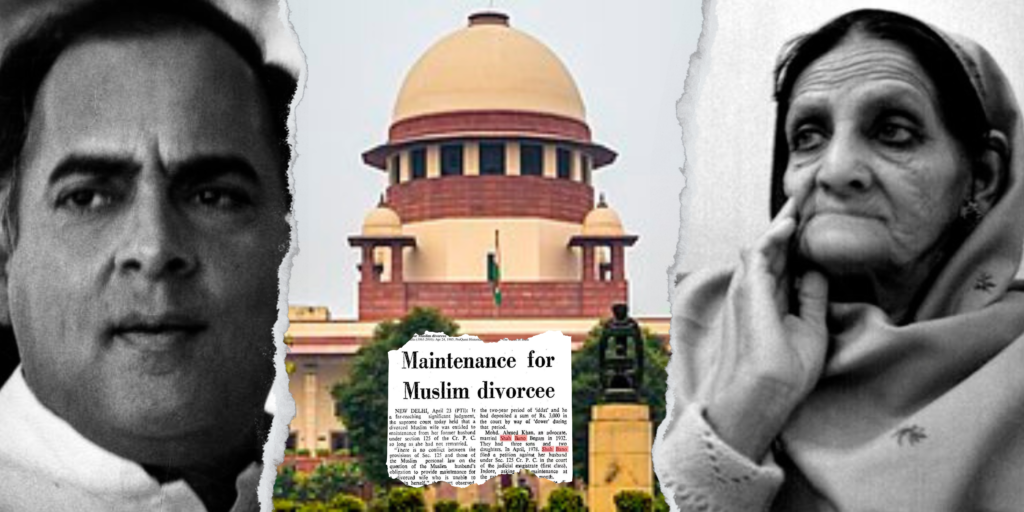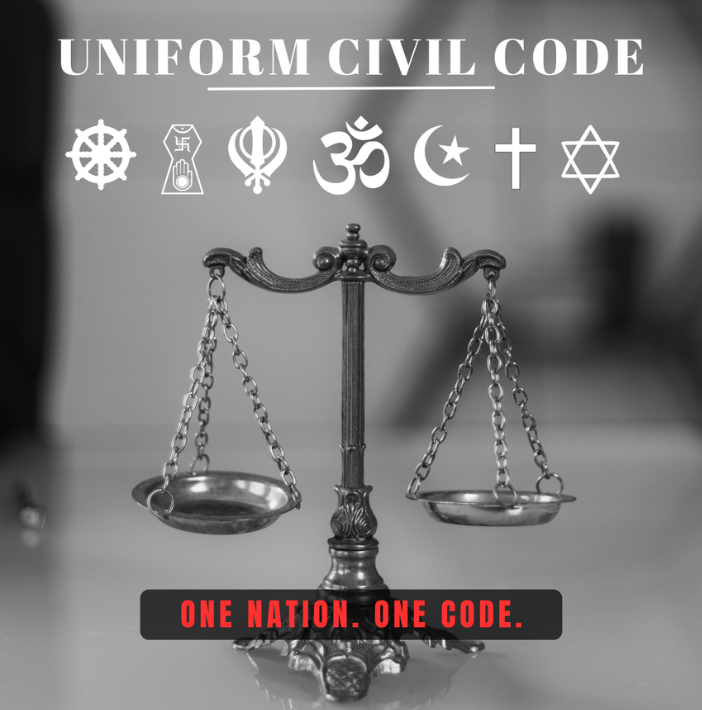To understand the birth of UCC, let’s go back in time to a post-Indian independence era.
In 1948, the Indian Constitution was being framed by an esteemed group of intellectuals and scholars. It is then, a reform proposal became the bone of contention which divided the Constituent Assembly into two distinct groups of advocates and critics. That reform was the Uniform Civil Code (UCC). The idea was that with UCC, all the personal laws would be abolished. It would bring the entire nation under a single law. Now arises the obvious question.
What are personal laws?
Laws based on religious texts or scriptures. These laws are formulated with relevance to religion, faith, gender or region.
These laws govern almost all the aspects of life: marriage, divorce, inheritance, adoption or guardianship.
With personal laws, every religion followed its own set of rules and regulations. Oftentimes these were discriminatory to certain sections of the society and genders.
UCC was debated over for months in the Constituent Assembly. Jawaharlal Nehru opined that it’s a herculean task to enforce such a rule in a religion-diverse country like India. Eventually, a compromise was made despite the efforts of strong advocates of UCC including Dr. B.R. Ambedkar. It was finally concurred that UCC be adopted when the “time seems fit”. Consequently, the need for UCC was added in the Article 44 of Directive principles of state policy (DPSP) in the Indian Constitution.
The State shall endeavour to secure for the citizens a uniform civil code throughout the territory of India.
Article 44 of DPSP, Indian Constitution
Now, what exactly is UCC?
One Nation. One Code. One Rule.
It means that all the people, irrespective of their religion, faith, gender or region, would come under the umbrella of one set of civil laws. UCC is mostly spoken in the context of establishing uniform personal laws which are currently different for different religions. These laws generally lead to unequal, unfair practices and justice.
Let’s take an example.
In 2017, the Supreme Court of India ruled triple talaq to be unconstitutional. Until then, the Muslim men could divorce their wives orally by saying talaq thrice. Once divorced, the maintenance rights of the wives such as alimony were also limited. This was unlike Hindu personal laws where divorce cannot be given orally and women have broader alimony rights.
Such gaps in the personal laws is what the UCC aims to eliminate along with an enforcement of gender equality and gender justice.
The Shah Bano Case

In April 1978, a 62-year-old Muslim woman Shah Bano filed a petition in court demanding maintenance from her divorced husband Mohammed Ahmad Khan, under Section 123 of the Code of Criminal Procedure, 1973.
The Section 123 of the Code of Criminal Procedure puts a legal obligation on a man to provide for his wife during the marriage and after divorce too if she isn’t able to fend for herself.
However, her husband contested the claim on the grounds that the Muslim Personal Law in India mandates the husband to only provide maintenance for the iddat (iddah) period after divorce, which is three months.
Iddat is the waiting period a woman must observe after the death of her husband or divorce before she can marry another man.
It is to be noted here that iddat doesn’t apply to husbands, only to wives. Khan’s argument was backed by the All India Muslim Personal Law Board. The board argued that
Courts can not interfere with the rules laid out by the Muslim Personal Law. They asserted that any such interference would be a violation of The Muslim Personal Law (Shariat) Application Act, 1937.
In April 1985 however, the Supreme Court of India upheld the decision of the High Court that ordered the payment of maintenance to Shah Bano. Nonetheless, the then Rajiv Gandhi government passed Muslim Women (Protection on Divorce) Act, 1986, essentially overturning the Supreme Court verdict. This was considered as one of Rajiv Gandhi’s most misguided decisions.
The Shah Bano case was considered a historic milestone as it mirrored the societal implications and contrasts that arise due to personal laws, in turn amplifying the need to implement UCC. It forced the entire nation to reflect upon how Shah Bano and many others like her would not have to lock horns with the system just to prevent personal laws from meddling in their life if UCC were in place.
Debunking myths around UCC
UCC is a veiled attempt to impose Hindu Laws.
Absolutely not. UCC means the neutralisation of all personal laws barring none. A code that will have nothing to do with religion.
It is a threat to secularism.
The Secularism in the Indian Constitution means no bias on the basis of religion. It also means that all religions are given equal status, recognition, and support from the state. This in fact aligns perfectly with the goal of UCC, to give equal rights to the people irrespective of their religions or caste.
It is targeting Muslim Religion.
All personal laws will be under scrutiny without any exceptions: the gender bias in Hindu Inheritance law, non-recognition of divorce by the Catholic church and many other laws across all religions.
Pros of implementing UCC
The advocates of UCC have been stressing on the same: all the communities at par with each other as provisions in some personal laws are perceived to be unequal.
It promotes national unity and enforces true secularism.
It can reduce the conflicts that may occur due the polarisation of religions, fostering internal peace.
It promotes the empowerment of women and the backward, oppressed communities allowing them a shot to rise above the prejudiced and patriarchal toxic mindset limitations.
Apart from the Supreme Court of India, the Bharatiya Janata Party (BJP) has been a strong advocate to implement UCC. However, it’s easier said than done. UCC is facing a backlash due to the self preservation interests of religious forces and political misinterpretation.
The only way to find a common ground is to gather the scholars and intellectuals from every religion and community, extract the best of their traditions and practices. Modify them so that it blends seamlessly with the modernised world under one civil code.
Many western countries and Islamic countries have already reformed their personal laws to prevent their misuse. Goa, an Indian state already has UCC in place.
It’s about time the whole of India embraced this. Because, the right time is NOW.
Namaste,
𝙰𝚒𝚝𝚌𝚑

